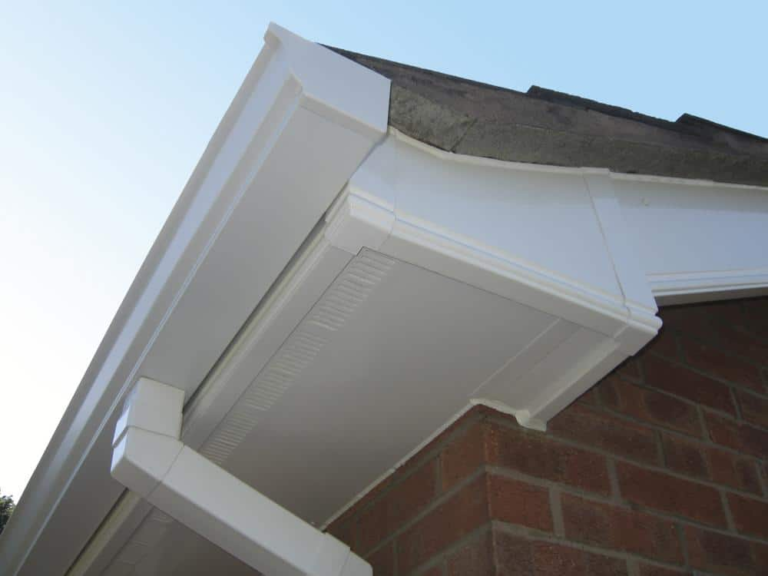
Understanding Timber Fascias: Design, Benefits, and Maintenance
Timber fascias play an essential role in the architectural aesthetic appeals and structural stability of a structure. These horizontal boards set up at the edge of roofing eaves not just enhance the visual appeal of a structure however likewise serve useful functions vital for its longevity. This short article dives into the significance of timber fascias, the product options available, and necessary maintenance practices to ensure they stand the test of time.
What is a Timber Fascia?
A timber fascia is a long, straight board that runs along the roof's edge, normally underneath the overhanging edge of the roofing system. It is common in both domestic and commercial buildings and is frequently painted or stained to match the general architectural style. By covering completions of rafters and providing a completed want to the roofline, timber fascias improve curb appeal while using substantial functional advantages.
Secret Functions of Timber Fascias:
Protection of Roof Structures: Timber fascias avoid moisture from going into the roofing system, securing rafters and underlayment from decay and rot.
Visual Appeal: The fascia board offers a decorative finish to the structure, connecting the general design theme.
Assistance for Gutters: Fascias offer an anchor point for gutter systems, guaranteeing the safe and effective drain of rainwater.
Vermin Deterrent: By covering the rafter ends, fascias assistance to keep animals from nesting in cavities that could form in the roofing system's structure.
Product Options for Timber Fascias
When choosing products for timber fascias, a number of options are offered, each with special benefits. Below is a breakdown of the most typical materials utilized:
| Material | Benefits | Disadvantages |
|---|---|---|
| Softwood | Cost-efficient, lightweight | Prone to warping and decay if neglected |
| Hardwood | Resilient, thick, and visually pleasing | More expensive, heavier to handle |
| Engineered Wood | Resistant to moisture and bugs | Limited natural appearance compared to solid wood |
| Composite | Durable and low maintenance | Can appear less authentic in style |
Benefits of Timber Fascias
Timber fascias supply numerous advantages that add to both functionality and aesthetic appeals. Here are some of the primary advantages:
Aesthetic Versatility: Timber fascias can be stained, painted, or left natural to match a building's design.
Sustainability: The usage of properly sourced timber can add to sustainable structure practices.
Reduce of Installation: Timber fascias are reasonably simple to set up, making them a popular choice among builders and specialists.
Personalization: Timber can be quickly formed and cut to fit distinct architectural styles.
Insulation Properties: Timber has natural insulation residential or commercial properties, helping enhance the energy efficiency of a home.
Maintenance of Timber Fascias
While timber fascias are attractive and practical, they do require regular maintenance to guarantee durability. Below are necessary maintenance suggestions to keep them in prime condition:
Regular Inspection:
- Check for indications of decay, rot, or damage at least two times a year, especially after serious weather condition.
Cleaning up:
- Clean the fascias with a soft brush or cloth to eliminate dirt, grime, and mildew. Avoid using harsh chemicals that can damage the surface.
Protective Coating:
- Reapply protective finishings, such as paint or spots, every number of years to preserve appearance and secure wood from moisture.
Seal Cracks:
- Fill any fractures or spaces to prevent moisture ingress, which can cause wood wear and tear.
Look for Pests:
- Look for signs of insects, such as woodpecker holes or insect tracks. Without delay resolve any problems to avoid structural damage.
Frequently Asked Questions About Timber Fascias
Q1: What wood species are typically used for timber fascias?A1: Commonly utilized wood ; they are necessary components that protect essential roof structures and enhance total appeal. Understanding the product alternatives, advantages, and maintenance requirements will assist homeowners and home builders in making informed choices. By investing time and care into timber fascias, one can guarantee their continued functionality and visual appeal for several years to come.
species include pine, cedar, and redwood due to their durability and attractive appearance. Q2: How often do I require to preserve my timber fascias?A2: Regular evaluations must be done a minimum of biannually, with cleaning and protective finishing checks performed every 1-3 years depending on the wood type and finish. Q3: Can I set up timber fascias myself?A3: While knowledgeable DIY enthusiasts may have the ability to set up timber fascias, it is advised to work with a professional for optimal outcomes, especially relating to fitting and sealing. Q4: What finishes are best for timber fascias?A4: Weather-resistant paints and spots that permit the wood to breathe are recommended to secure versus moisture and UV damage.Q5: Are timber fascias ecologically friendly?A5: When sourced from sustainably managed forests, Timber Fascias (Click On this site) can be an environmentally friendly building alternative. Timber fascias are not just visual additions to your home's architecture



